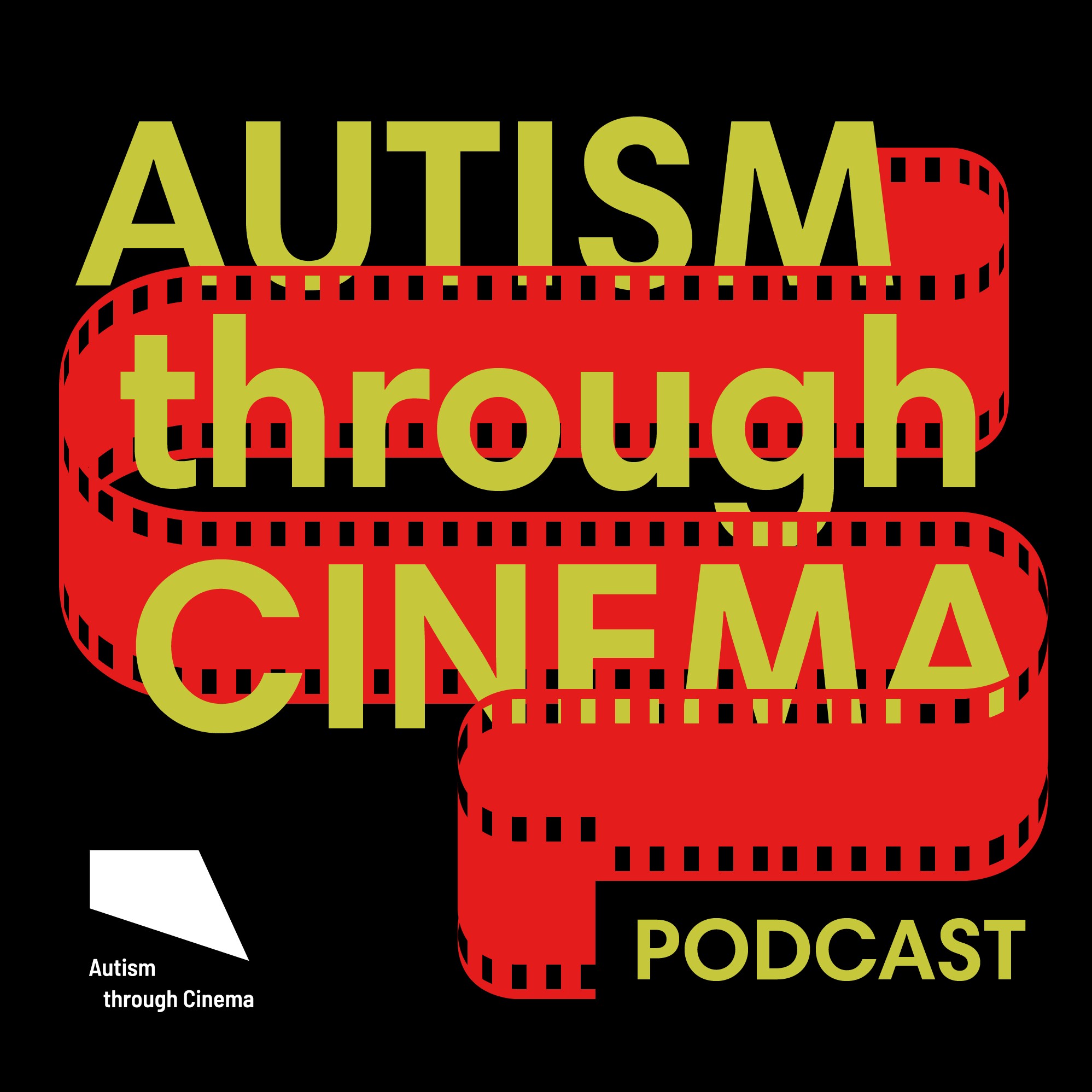
Investigating autistic presence and expression on film and TV. We push beyond the obvious and seek out autistic themes and concerns in films from across the cinematic spectrum. We consider the ethics of performing autism, while also celebrating the autistic pleasures offered by the camerawork and the soundscapes. We delve into the works of cult directors who have hit upon an autistic way-of-seeing, perhaps without ever intending to. We entertain new possibilites for re-thinking beloved films in a neurodivergent light. Join regular contributors Janet Harbord, Georgia Bradburn, John-James Laidlow, David Hartley and Alex Widdowson for their fascinating and diverting discussions of a whole suite of suprising and challenging films. This podcast is brought to you by the Autism Through Cinema project, based at Queen Mary, University of London and funded by the Wellcome Trust. For further information on the wider project, visit our website at autism-through-cinema.org.uk and follow us ...
Investigating autistic presence and expression on film and TV. We push beyond the obvious and seek out autistic themes and concerns in films from across the cinematic spectrum. We consider the ethics of performing autism, while also celebrating the autistic pleasures offered by the camerawork and the soundscapes. We delve into the works of cult directors who have hit upon an autistic way-of-seeing, perhaps without ever intending to. We entertain new possibilites for re-thinking beloved films in a neurodivergent light. Join regular contributors Janet Harbord, Georgia Bradburn, John-James Laidlow, David Hartley and Alex Widdowson for their fascinating and diverting discussions of a whole suite of suprising and challenging films. This podcast is brought to you by the Autism Through Cinema project, based at Queen Mary, University of London and funded by the Wellcome Trust. For further information on the wider project, visit our website at autism-through-cinema.org.uk and follow us ...
Episodes
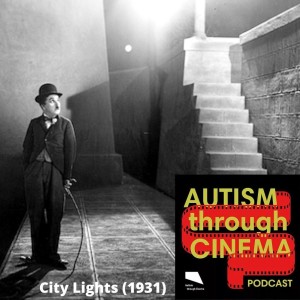
Friday Aug 19, 2022
City Lights (1931) dir. Charlie Chaplin
Friday Aug 19, 2022
Friday Aug 19, 2022
It is the early 1930s and sound has arrived to cinema. The medium's most celebrated silent era star is struggling to embrace this new audio dawn, preferring to keep his iconic little tramp mute while making only minimal use of sound effects. Along comes City Lights, perhaps Chaplin's most personal film, and we spend time with the Tramp and his hijinks and pratfalls to uncover autistic content. Are his awkward yet balletic movements through spaces reminiscent of some autistic tendencies of clumsiness? Does his resistance to the noise of the sound era create an autistic aesthetic of imagery and music rather than verbal communication? Do we need words anyway?
After a wonderful introduction from Lillian, Ethan and David join in the discussion and we revel in the set-pieces, the performance, and the gloriously romantic ending. Apologies for such a loooong episode, but we had so much we wanted to say!
Please do join in the conversation via our email cinemautism [at] gmail.com, and if you enjoy this podcast, please leave us a review on Apple Podcasts, or simply share it with everyone you know...
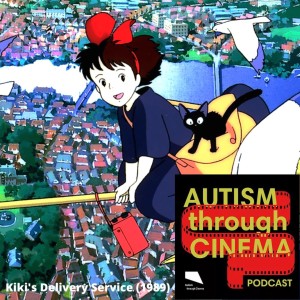
Friday Aug 05, 2022
Kiki’s Delivery Service (1989) dir. Hayao Miyazaki
Friday Aug 05, 2022
Friday Aug 05, 2022
Lillian, David and Alex grab their broomsticks and take flight today into the magical worlds of Studio Ghibli via Hayao Miyazaki's 1989 film Kiki's Delivery Service. In among the gorgeous animation we find a meditation on the nature of difference and an exploration of the feeling of being an outsider. Kiki's wild energy and her bouts of gloom are likened to the rollercoaster emotions of the hardworking neurodivergent, while the concept of witchiness is also brought under autistic scrutiny. We reflect on how why the genres of anime and manga seem to appeal to autistic sensibilities, then we discuss a few more Ghibli films that have made a strong impression on us - particularly Spirited Away (2001) and Ponyo (2008).
What's your take on Studio Ghibli films? Have they offered a cinematic space of autistic pleasure and escapism? Let us know your favourites on twitter at @AutismCinema or via email on cinemautism[at]gmail[dot]com.
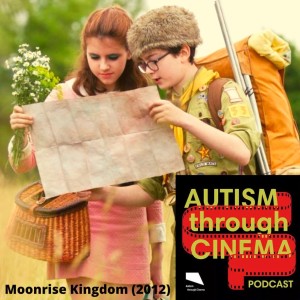
Friday Jul 22, 2022
Moonrise Kingdom (2012) dir. Wes Anderson
Friday Jul 22, 2022
Friday Jul 22, 2022
Jiminy Cricket! It's a Wes Anderson episode!
David, Lillian and Ethan get all warm and cosy with the pastel-colours and eccentric characters of Anderson's celebrated 7th feature film Moonrise Kingdom. The film crackles with a neurodivergent energy, from the neat tableaus of the cinematography to the gently rebellious characters of Sam and Suzy. We discuss how Anderson's use of a childlike gaze creates a visual style that emphasises formal qualities and static images, with a clear attention to comedic background details. We find useful analysis from Jacob Siegel's essay 'Wes Anderson and the Aesthetics of Autism', particularly the idea that having 'a fierce loyalty to one's passions' is 'it's own victory' as evoked by many of Anderson's tragic and comedic characters. Find the full essay here: http://newpartisan.squarespace.com/home/wes-anderson-and-the-aesthetics-of-autism.html
There's also enthusiasm for Anderson's use of Benjamin Britten's music in Moonrise Kingdom, his careful approach to sexuality, and the performances of Tilda Swinton (who has appeared previously in our Orlando episode).
As ever, we'd love to hear from our listeners. Do you have a favourite Anderson film? Do you find an autistic presence in his movies? If you have comments, let us know via cinemautism@gmail.com and we'll find some time to read them out in a future recording.
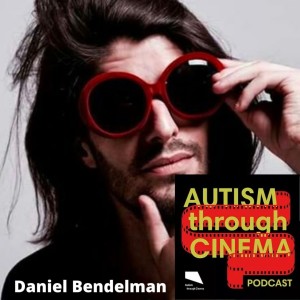
Friday Jul 08, 2022
Daniel Bendelman - autistic video artist
Friday Jul 08, 2022
Friday Jul 08, 2022
In the second of a series of special episodes featuring autistic creatives, Janet and Ethan welcome the wonderful Daniel Bendelman to the podcast. Daniel is an autistic video artist and PhD student at The University of Kent whose work attempts to expose the power dynamics of autism representation through video art and performance-based installations. In particular, the team discuss Daniel's remarkable installation for 'Fragments', where Daniel performed the writing of his medical history next to a looped sequence from Rain Man, and his compelling short film 'The Life and Death of an Anonymous Autistic Man', produced by DYSPLA in 2018.
Daniel reflects on the influences of Michel Foucault and Franz Kafka on his work, and digs into his history as a person diagnosed as Aspergers at a childhood age and how his art practice humanises those experiences. There's also time for discussion around the complicated history of the term 'Aspergers' itself, from its removal from the DSM to the troubling associations of Hans Asperger with the Nazi regime.
Read more about Daniel in his interview with Colin Hambrook on Disability Arts Online: https://disabilityarts.online/magazine/opinion/daniel-bendelman-disrupting-the-gaze/
The imagery from Daniel's installation 'Fragments' can be viewed here via Gorm Ashurst's photography: https://www.gorminator.com/2015/06/fragments/
An expert from Daniel's film 'Life and Death of an Anonymous Autistic Man' can be viewed on DYSPLA: https://dyspla.com/Anonymous-Autistic-Man_film
Have you seen any of Daniel's work? What are your thoughts? Do get in touch with us on cinemautism@gmail.com to join in with the conversation.
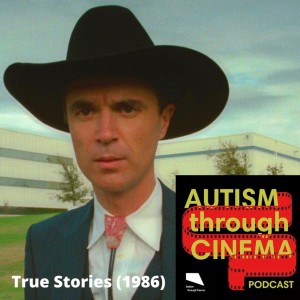
Friday Jun 24, 2022
True Stories (1986)
Friday Jun 24, 2022
Friday Jun 24, 2022
Same as it ever was! Same as it ever was!
Today we're in the company of the great David Byrne, the lead singer of Talking Heads, and his one and only feature film True Stories. There are, as Alex suggests, 'big-time autistic vibes' around Byrne in the film, but also in the sensibility of the way the film is structured and presented. We enjoy being led through the world of the film through the eyes of an autistic individual, leading us to question whether an autistic sensibility resists or challenge conventional narrative forms. We discuss the diagrammatic nature of the narrative and how that provides a sense of a soothing order, as well as a Brechtian distance, while also reflecting on Byrne's interest in technofuturism.
The film in this episode was recommended to us by listener Analotta Pauly, who sent us a link to this brilliant article on Medium: https://medium.com/counterarts/david-byrnes-true-stories-as-a-search-for-autistic-connection-43629c62cd07
We're always keen to hear from our listeners, so please do drop us a message on cinemautism@gmail.com if you'd like to suggest films for us to consider in the future.
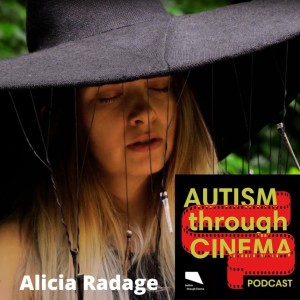
Friday Jun 10, 2022
Alicia Radage - neurodivergent video artist
Friday Jun 10, 2022
Friday Jun 10, 2022
In the first of a series of special episodes talking with neurodivergent and autistic filmmakers and film workers, we welcome video artist Alicia Radage to the podcast. Alicia's practice combines performance art, shamanistic ritual and videography that attempts to reach an understanding of neurodivergent connections to the 'more-than-human'. We discovered her through brilliant Shape Arts commission 'Quake', where she performs a ritualistic cycle of singing, meditating and dancing for worms - find the link to the work below. We discussed the possibilities of a neurodivergent aesthetic, how film allows performance artists to make enriched use of time and detail, and problems with the terms 'high and low functioning'.
We also spent some time talking with John-James Laidlow, our regular host, about his video work Another Way is Possible and Peeling Tatties, available to view on his website. Recently, John-James has decided to step down from the podcast as a regular host so we'd like to say a big thank you to John-James for all his brilliant contributions to Autism Through Cinema.
A quick word of warning: there is some use of strong language in this episode, so please use caution if that is an issue for you. Also, Alicia's work that we link to below on her website contains nudity and some challenging themes.
Huge thanks to Alicia for agreeing to be on the podcast and for being such a fascinating guest!
Alicia Radage's website: https://www.aliciaradage.com/
Quake on Shape Arts: https://www.shapearts.org.uk/blog/watch-quake-a-new-performance-work-from-alicia-radage
Quake on Alicia's website: https://www.aliciaradage.com/quake (CW: nudity)
Alicia at the Whitstable Biennale with MOTHER BENT, 11th June: https://whitstablebiennale.com/project/mother-bent/
Alicia as part of 'The Healing Collective' at Giant Gallery in Bournemouth from the 19th June: https://www.giant.space/upcoming
John-James Laidlow's video work: https://john-james.hotglue.me/
The philosopher Erin Manning's book Always More than One: https://www.dukeupress.edu/always-more-than-one
Autistic musician John Biddulph and his moss music: https://johnbiddulph.bandcamp.com/album/perambulations-i
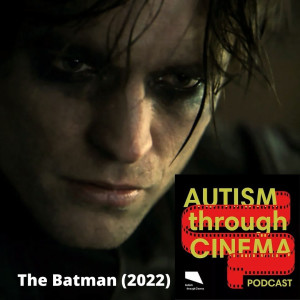
Friday May 27, 2022
The Batman (2022) dir. Matt Reeves
Friday May 27, 2022
Friday May 27, 2022
We're back! Thank you for bearing with us while we spent some time recording some new episodes.
First up, we find ourselves in Matt Reeves's gloomy new vision of Gotham City. We are prompted to use 'The Batman' as a way of doing self-reflection about the stereotypes perpetuated by autism-focused media, but we also find discussion points among the tricky representation of neurodivergence found in superheroes and supervillains. In particular, we tackle the relationship between incel culture and autism via Paul Dano's latest version of The Riddler, while also entertaining the possibility that Robert Pattinson's emo Bruce Wayne may also display traits of autistic tendency. And what of Gotham itself? A city that has descended into a dystopia of neurotypical dominance?
The parody of Autism Speaks and The Guardian which leads our discussion, as found by Alex Widdowson: https://www.instagram.com/p/CawTdTLr6t0/
ContraPoints on Incels: https://www.youtube.com/watch?v=fD2briZ6fB0
Thanks for listening! Do get in touch with us via cinemautism@gmail.com to suggest future episodes or to contribute to the discussions. We'll read out our favourite correspondance in a future recording!
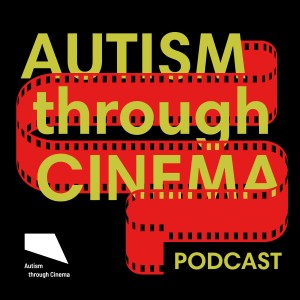
Friday Apr 08, 2022
A Brief Hiatus... we will be back!
Friday Apr 08, 2022
Friday Apr 08, 2022
Dearest listeners - we need to take a short break while we record some new episodes. When we return, we plan to bring you a special series of episodes where we talk to autistic people working within the film industry, alongside our regular output of film discussions.
To that end, if YOU are an autistic person working within the film industry in some form, we'd love to hear from you! Please get in touch on cinemautism@gmail.com and tell us a bit about yourself. Or you can drop us a message via our website: https://www.autism-through-cinema.org.uk/contact
In the meantime, our back catalogue of episodes is staying up, giving you time to catch up with any you may have missed.
We hope to return in the summer. See you then!
ATC Podcast
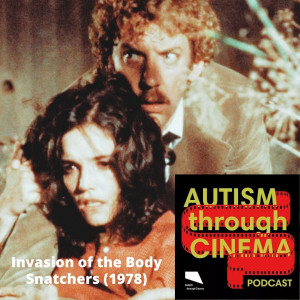
Friday Mar 25, 2022
Invasion of the Body Snatchers (1978) dir. Philip Kaufman
Friday Mar 25, 2022
Friday Mar 25, 2022
Our podcast people - namely John-James, Alex and Ethan - tackle the pod people of Philip Kaufman's 1978 sci-fi horror film Invasion of the Body Snatchers. This unnerving tale of alien invasion arose from the anxieties of the 'Red Scare' of the 1950s when Soviet Union communism was the peak existential threat to the American way-of-life. The aliens clone humans in pods and use those clones to lure new victims. It is the strange behaviour of the clones that alerts the heroes to the presence of an invasive force. So, in the context of autism and neurodivergence, we find here a tale of neurological difference where behaviour and social divergence marks people out as 'other'. We toy with the idea that the pod-people are the conformist neurotypicals determined to assimilate everyone into their ideology, but those same aliens could metaphorically stand for the fears of the 'contagion' of neurodivergence. Perhaps the pod-people are thrillingly different? Perhaps they are revolutionaries? We twist and turn around these ideas, before contemplating what a present day version of this timeless tale might look like.
The voices in this episode are Ethan Lyon, Alex Widdowson, and John-James Laidlow.
Give us your thoughts by email cinemautism[at]gmail.com
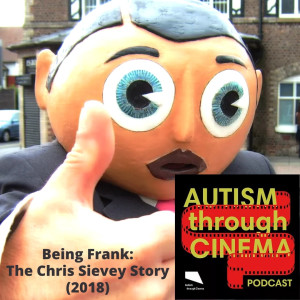
Friday Mar 11, 2022
Being Frank: The Chris Sievey Story (2018) dir. Steve Sullivan
Friday Mar 11, 2022
Friday Mar 11, 2022
Ey up! We're up North today, in the company of cult comedy music legend Chris Sievey and his alter-ego Frank Sidebottom (and Little Frank, of course!). Our special guest is artist, writer and voice artist Sumita Majumdar who brings along her love and admiration for the wacky and unconventional Frank. We discuss how masking crosses over with performance, and how performance itself is a blurry concept when we layer ourselves with so many identities. We also reflect on the term 'eccentricity' and how that fits into the neurodiversity paradigm. There's a sense that Frank's eccentric character is made possible from being a northerner in a northern town rather than a Londoner, causing us to reflect on how neurodiversity sits in relation to locality. The film documents how the Frank Sidebottom character takes over Chris Sievey's life and dwells on some of the suffering Sievey goes through as a result. But we find 'suffering' to be a problematic concept in relation to the creation of art, and wonder if the ideas of neurodiversity give us a new way of looking at artistic creation and artistic industries.
For those unfamiliar with Frank Sidebottom, we suggest this delightful video of 'Panic on the Streets of Timperley': https://www.youtube.com/watch?v=LcAME_Hs9mg
Big thanks to Sumita for joining us on this episode. For more on Sumita's work, do have a read of her article for the National Autistic Society: https://www.autism.org.uk/advice-and-guidance/stories/stories-from-the-spectrum-pablo
Sumita was joined today by regulars Alex and David.
Follow us on @AutismCinema on Twitter and Instagram and email feedback to us on cinemautism[at]gmail.com
